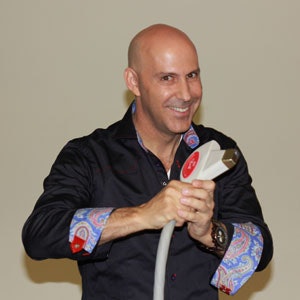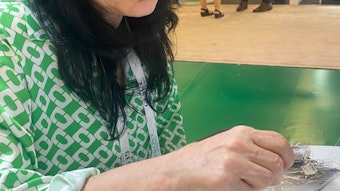
You’ve heard of that little search engine called Google, right? Then, no doubt you’re familiar with Google Ads, its pay-per-click (PPC) advertising platform. Google Ads are those little boxes that pop up when searching specific keywords or phrases, and while there are now a number of other PPC platforms, Google Ads is undoubtedly the “big daddy.”
Any business can use PPC marketing as a means of driving traffic to its website; the only downside is that, if you aren’t careful, it can also be costly. Every time someone clicks on one of your ads, they’re taken to your website and you pay a fee for it. Let’s say you “bid” $12 on a popular phrase such as “laser hair removal.” That means your ad will pop up when people search on that phrase. If 20 people click on your ad every day for a month, that’s 20 people multiplied by $12 then multiplied by 30 days per month. As you can see, it adds up quickly! If people are actually making purchases from you, that’s great. But what if they aren’t? You still have to pay for their clicks. See how you can actually start making money from these PPC ads instead of spending it.
Set Your Budget
Decide how much you can afford to spend each day or month on PPC. If you have only $10 per day, that’s perfectly fine. The keys to PPC success are finding keywords and phrases that will get you the biggest bang for your buck, and creating ads with strong content that makes viewers want to click on them.
Choosing Better Words for Bigger Bucks
Signing up for a Google Ads is free, and you only pay for the keywords and phrases you bid on. After you sign up for a Google Ads account, you’ll have access to a keyword planner so you can see which phrases are relevant to your business are the most frequently searched. You’ll have to experiment with different keywords and phrases to see which ones get you the most clicks.
A phrase like “laser hair removal” may seem like a good one but ends up being too expensive and too generic, meaning that you’re competing with a lot of other businesses using that same phrase. You may find that “Brazilian laser hair removal packages near me” costs less and gets you more clicks.
Getting Quality Ads
Google Ads has several helpful tools to help you write good quality ads so that people will get a good idea about who you are and what you offer in just a few lines of text. Even better, it offers free phone consultations with its experts who can save you a lot of time and money. Most experts suggest creating at least three ads per campaign so that they can rotate and you can determine which ads are more successful in terms of clicks.
Google Ads vs. Facebook Ads
Facebook Ads work a little differently than Google Ads. When a viewer checks his or her Facebook newsfeed, ads pop up, but they’re based on demographics and viewing habits rather than search terms. Facebook Ads allow you to create a “look-alike audience,” basically meaning that you determine the type of viewers you want to see your ads. For example, you can choose to target professional women between the ages of 18 and 70, who are interested in health and beauty, etc.
Google Ads tend to garner more qualified leads because someone is specifically looking for something; Facebook Ads offer something a person might be interested in, but they may or may not be interested in an ad for “laser hair removal” at that particular moment. The trick to Facebook Ads is offering something that’s amazing—a deal so good, the viewer feels she or he simply can’t pass it up.
The benefits of Facebook Ads are that they have the potential to reach a targeted audience and cost less than Google Ads. I suggest including both platforms in your PPC budget, keeping track of what works best for you.
The Importance of Landing Pages
One of the most important aspects of any PPC campaign is getting viewers who click on your ads to the appropriate page on your website. If a viewer saw your ad for “Brazilian laser hair removal” and clicked on it, they want to be taken to a page that tells them all about that particular subject.
Don’t send them to your home page, or some other generic page. While they’re clicking around on your website trying to find out more about “Brazilian laser hair removal,” their kids are probably asking when dinner is ready and their bosses are suddenly looking over their shoulders. Before you know it, they’ve clicked away from you and you’ve lost a sale.
Also, be sure to include highly visible contact information (i.e. your phone number, address, a button for them to request more information, make a purchase or schedule an appointment).
Top 3 Tips for PPC Advertising on a Budget:
- Track your results. Which ads get the most clicks? Which ads lead to the most sales? An easy way to do this is by inserting a tracking code into a “thank you for making a purchase” page on your website. If you aren’t tech savvy, a web designer can easily do this for you.
- Create new ads. Be sure to do this on a regular basis so that viewers aren’t always seeing “the same old thing.” Build on successful ads; get rid of ads that don’t work.
- Check your ads. You should be doing this at least once a month to ensure viewers are still being sent to relevant pages on your website.











